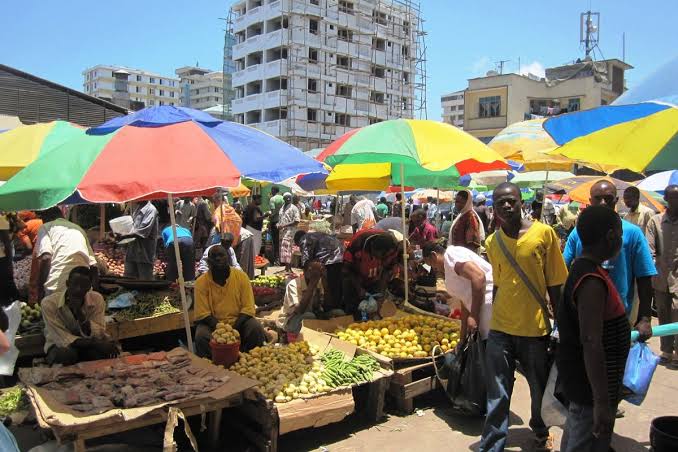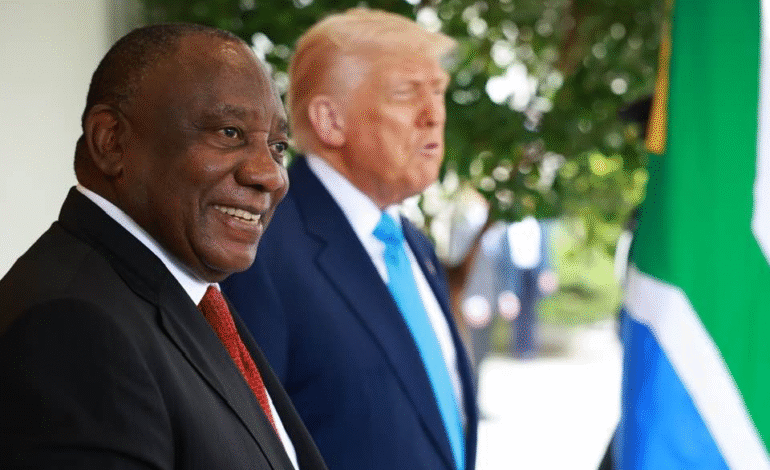
Faith Nyasuguta
Tanzania has passed a new law that bans foreigners from doing certain small and medium-sized businesses in the country. The rule was signed on July 28, 2025, by Industry and Trade Minister Selemani Saidi Jafo. It is meant to protect business opportunities for Tanzanian citizens and limit foreign competition in key everyday business sectors.
The prohibited sectors include retail and wholesale trade (excluding supermarkets), mobile money transfer kiosks, phone repair shops, salons (outside hotels or tourism contexts), domestic and environmental cleaning services, small-scale mining, tour guiding, postal and parcel delivery, curio shops and museums, radio and TV stations, brokerage in real estate or business, clearing and forwarding services, crop purchasing at farms, gambling machines outside licensed casinos, and ownership of micro and small industries .
Under the new regulations, licensing authorities – including BRELA and sector-specific regulators – are prohibited from issuing or renewing licences to non-citizens operating in these sectors. A transitional clause allows current license holders among foreigners to continue until their licence expires, but no renewals will be granted thereafter.

Penalties for violation are harsh. Non-citizens operating in prohibited businesses may face a fine of no less than TSh 10 million (USD 3,900), imprisonment for up to six months, or both. Visa and residence permits may also be revoked. Tanzanian citizens found aiding non-citizens in running these businesses can face fines up to TSh 5 million (USD 1,950) or imprisonment of up to three months .
The government has justified the move as a response to persistent complaints from Tanzanian business owners – particularly in markets like Dar es Salaam’s Kariakoo – who argue that foreign traders, notably from China, have undercut local sellers in vital grassroots sectors, undermining local livelihoods and widening economic inequality.
These restrictions come amid broader economic nationalism in Tanzania. Earlier in 2025, the government mandated that only the Tanzanian Shilling be used for domestic transactions, banning foreign currencies such as the US dollar for local purchases.
While the policy has garnered support within Tanzania as a means to preserve citizen livelihoods and boost local entrepreneurship, it has also raised concerns among neighboring countries within the East African Community (EAC). Kenya, Rwanda, Burundi, South Sudan, Somalia, and the Democratic Republic of Congo – all with nationals engaged in Tanzania’s informal sector – may see their citizens disproportionately affected. Critics warn that the regulation could disrupt regional integration and prompt similar protectionist measures across borders.

Although the directive officially targets individuals, regulatory practice in Tanzania commonly treats companies owned or controlled by non-citizens as subject to the same restrictions – meaning even registered foreign-owned entities may face licensing hurdles depending on their ownership structure .
The legal framework derives its authority from amendments to the Business Licensing Act Cap 101, introduced through the Finance Act, 2025, empowering the Ministry of Industry and Trade to declare non-citizen prohibited activities via ministerial order. The Citizenship Act, Cap 357, defines who qualifies as a non-citizen, ensuring the order applies clearly to individuals lacking Tanzanian nationality.
As a result, foreign entrepreneurs currently running businesses in the restricted areas must prepare for license expiration without renewal. Legal advisers expect the Ministry to issue supplementary guidance soon, clarifying how the restrictions will be enforced and whether company-level operations will also be curtailed .
This decisive policy marks a major alteration in Tanzania’s business and trade environment, prioritising economic indigenisation. While it reflects the government’s commitment to rebalancing economic ownership in favor of Tanzanians, it also risks impairing cross-border commerce and triggering retaliatory measures from regional partners – potentially straining trade relations across East Africa.
RELATED:








